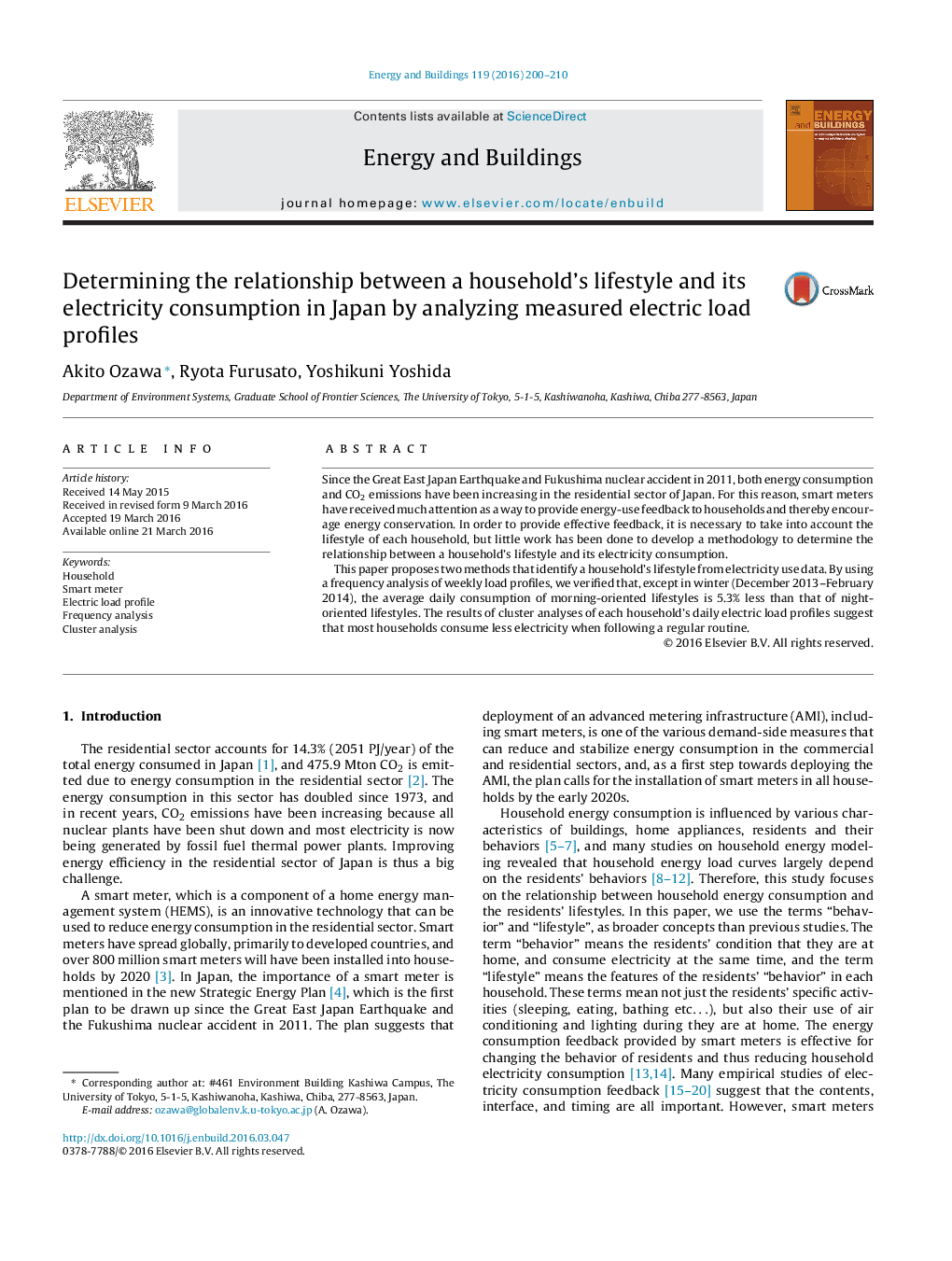| کد مقاله | کد نشریه | سال انتشار | مقاله انگلیسی | نسخه تمام متن |
|---|---|---|---|---|
| 262216 | 504016 | 2016 | 11 صفحه PDF | دانلود رایگان |
• We develop two methods that identify a household’s lifestyle from electricity use.
• Morning-oriented lifestyles reduce electricity use, except in winter.
• Most households consume less electricity when following a regular routine.
Since the Great East Japan Earthquake and Fukushima nuclear accident in 2011, both energy consumption and CO2 emissions have been increasing in the residential sector of Japan. For this reason, smart meters have received much attention as a way to provide energy-use feedback to households and thereby encourage energy conservation. In order to provide effective feedback, it is necessary to take into account the lifestyle of each household, but little work has been done to develop a methodology to determine the relationship between a household’s lifestyle and its electricity consumption.This paper proposes two methods that identify a household’s lifestyle from electricity use data. By using a frequency analysis of weekly load profiles, we verified that, except in winter (December 2013–February 2014), the average daily consumption of morning-oriented lifestyles is 5.3% less than that of night-oriented lifestyles. The results of cluster analyses of each household’s daily electric load profiles suggest that most households consume less electricity when following a regular routine.
Journal: Energy and Buildings - Volume 119, 1 May 2016, Pages 200–210
